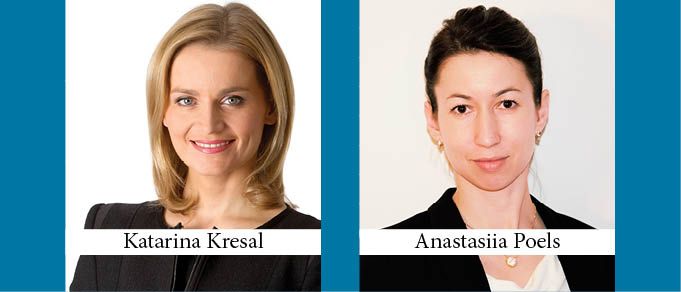Of the former Yugoslavian countries, Slovenia was the least penetrated by Russian businesses – a result of mutual caution on both sides.
The financial crisis of 2012 froze most international investments and the introduction of EU sanctions against the Russian Federation due to the Russian invasion to Crimea, Russia’s support of the illegally armed groups in the Ukrainian East, and the flow of weapons and militants across the border in 2014 resulted in further cooling of Russian-Slovenian economic partnerships.
However, those EU sanctions apply by and large only to the military industry (including dual-use products and technologies and related services and assistance), some financial instruments, and certain entities related to the political and military sector. Thus, private businesses not engaged in military and political activities are, in general, not affected.
Russian and Slovenian governments, however, along with their respective business communities, have lately shown increased interest in promoting and reinforcing mutual investment. Although at the moment the investment inflow from Slovenia to Russia outpaces the investments going the other way, the Slovenian market, as one of the best-performing newcomers to the EU, offers solid business opportunities for Russian investors.
For instance, Slovenian market opportunities are largely tied to the state-owned assets offered for privatization (as listed on the website of the Slovenian Sovereign Holding), particularly in such sectors as banking and finance, tourism, the metal/machinery industry, etc.
Naturally, private enterprises which find themselves stagnant following the financial crisis of 2012 could overcome the recession and regain the competitiveness of their products and services by way of fresh investment.
Foreign investors coming to the Slovenian market should be aware not only of the local legislation governing mergers and acquisitions, but also, as the country is n EU member state, with EU umbrella legislation. The sphere of foreign direct investment (FDI) as part of the common commercial policy is in the EU’s level of competence. Therefore, a foreign investor should consider, along with Slovenian legislation, the possible implications of the EU acquis communautaire.
In this respect the European Commission plans to introduce new FDI screening requirements that are likely to affect EU interests, particularly in sensitive sectors such as critical infrastructure, technologies, supply, and sensitive information, where the foreign investor is in any way backed up by his/her government (the EU’s list of screening factors is not exhaustive and shall be determined by the Member State concerned).
A draft Regulation establishing a framework for screening FDI was launched by the European Commission on September 13, 2017 (the “Regulation”). This Regulation is not designed to establish one EU-level mechanism for FDI screening, but rather would oblige the Member States to follow the same standards (including transparency, non-discrimination, setting up the grounds for screening, timeframes, judicial redress, and so on) for screening while coping with FDI in sensitive sectors within national screening processes and to ensure the right of the European Commission or another affected Member State to express their concerns and to obtain a relevant response from the State of investment.
It is also planned, moreover, that by the end of 2018 the European Commission will undertake an in-depth analysis of FDI flows into the EU focusing on strategic sectors and assets.
Although the adoption of the Regulation is rather controversial and some claim it improperly restricts the freedom of investment, it is most likely that a screening process will be introduced in the EU and thus will be added to the M&A legal “to do” checklist.
In the absence of a valid Bilateral Investment Treaty between Slovenia and Russia (one was signed in 2000 but did not enter into force) and due to the high level of connection between Russian businesses and their government the screening process may become an important legal constraint Russian investors should take into account when considering M&A in Slovenia.
By Katarina Kresal, Partner, and Anastasiia Poels, Legal Counsel, Miro Senica and Attorneys
This Article was originally published in Issue 5.2 of the CEE Legal Matters Magazine. If you would like to receive a hard copy of the magazine, you can subscribe here.














